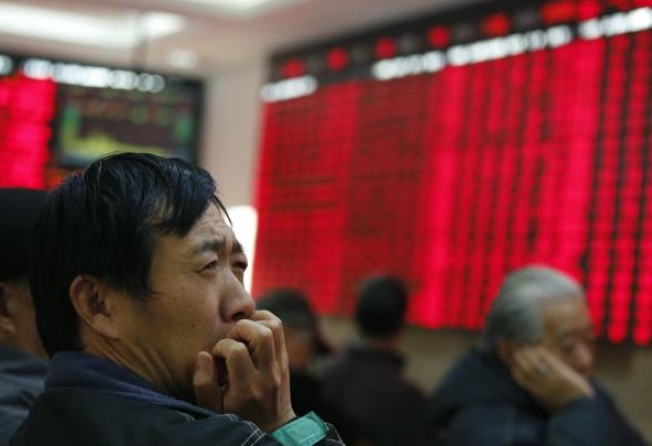Talking Points: China A Shares

Is now the time to buy China A shares? It's the question on everyone's lips after the Shanghai Composite rose 4 per cent last week, ostensibly on supportive market reforms announced by the government, but in reality on hopes that the mainland's dormant volcanoes - retail investors - are finally ready to start buying.
Mainland retail investors, who comprise 35 per cent of the onshore investor base but account for 80 per cent of daily turnover - have had a tough time of it of late. A study of 8,500 households by Chengdu's Southwestern University of Finance and Economics found that of those with any stock investments, 77 per cent had yet to make a profit.
At the same time, the retail-fuelled, 470 per cent rise in the Shanghai Composite Index in 2006-07 is remembered with longing and anticipation. Could it happen again? Some analysts believe the index is poised to rally 48 per cent higher by mid-2013. Others - myself included - suspect last week's rally was yet another false dawn destined to flounder like so many others.
Optimism about a genuine onshore rally has been primed by the recent performance of its offshore variant, the H-share market. Since mainland China's green shoots started emerging and the US launched its liquidity-rich quantitative easing initiative in mid-September, the Hang Seng China Enterprises Index has rallied more than 15 per cent. Moreover, there's no sign of a let-up in enthusiasm; for example, China-related equity inflows recorded over the past two weeks were the largest in more than two years.
Conversely, the Shanghai Composite Index - long beaten up by negative earnings growth and multi-year underperformance - has fallen by more than 4 per cent. "But it's cheap," cry the value hunters; indeed, it's one of the cheapest major markets in the world, with a price-to-earnings ratio in single digits. Unfortunately, as Japan has taught us, what is cheap, worryingly, can become cheaper still.
In fact, comparing the onshore and offshore markets is rather like comparing apples and pears; while there are similarities there are also meaningful differences. For example, dual-listed names comprise almost all of the offshore market yet just half of the onshore market. While the former is dominated by financials, the latter is populated largely by materials, energy and industrials.
Inevitably, differences in (currency adjusted) pricing also exist. Since 2006, for example, the A-share market has tended to trade at a 20 per cent price premium to the H-share market; but in the past few weeks the difference has narrowed to become a rare discount on rampant buying by offshore investors. So surely it's just a matter of time before arbitrage between the two markets ensures mean reversion and normality is restored? Put another way, shouldn't we start buying A-shares ahead of this?
Well, unfortunately not. The reality is the onshore market is experiencing a serious liquidity overhang that economic green shoots are unlikely to resolve any time soon.
According to official records, some 800 firms have applied for an initial public offering while 99 have secured approval for launch, subject to market timing. That's a lot of issuance in a very short time.
It also doesn't help that existing insiders appear to be dumping stock as soon as lock-up periods expire.
For example, last month insiders were estimated to have sold 80 billion yuan (HK$98.6 billion) of stock; this month the metric is expected to increase to 180 billion yuan, equivalent to more than 50 times the average monthly A-share turnover for the past five years.
In other words, the A-share "surge" is unlikely to happen soon. Yes, fundamentals appear to be improving - although as we've said the jury's still out on whether the mainland's apparent recovery has legs; and yes, valuations are compelling. But a reasoned investment decision requires a third tick box, technicals. As long as liquidity remains an issue we would advise investors to watch and wait.
John Woods is chief investment strategist, Asia-Pacific, for Citi Private Bank